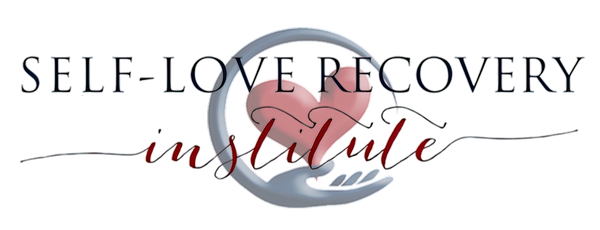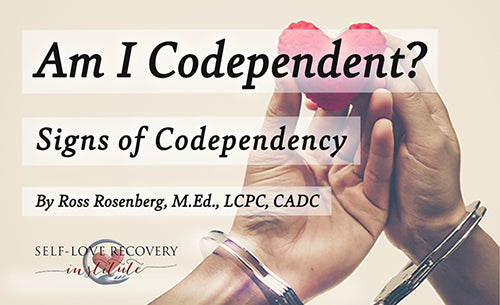Ro
Written by Ross Rosenberg, M.Ed., LCPC, CADC
Self-Love Recovery Institute — President/CEO
Psychotherapist, Educator, Author, Expert Witness
Codependents cannot shake the unrealistic belief that happiness will only come if they are in a relationship. They look to other people to make them feel happy and fulfilled. Because of their Human-Magnet-Syndrome-driven relationship choices, their hope of a “happy ever after” disintegrates at the very moment their narcissist in hiding takes off his soulmate mask.
Since the codependent unconsciously chooses partners who are unwilling, unmotivated, or unable to meet their personal and emotional needs, they may choose the path of control to get their pathologically narcissistic partner to give them what they want and need. To some, it is counterintuitive for codependents to be controlling. There are, indeed, codependents who do give up and take a passive victim-based role in their dysfunctional relationships.
However, because most codependents typically take on the lion’s share of the relationship responsibilities such as childcare, house cleaning, cooking, shopping, and/or financially supporting the relationship/family, they cannot afford to acquiesce and relinquish control of their family’s life. Without maintaining some semblance of control, they and their family would certainly suffer. To most codependents, the idea of stopping their attempts to get their narcissistic partner to reciprocate or behave fairly and responsibly is tantamount to giving up on their relationship; something codependents are mostly reluctant or incapable of doing.
The codependent’s compulsion to control someone who cannot be controlled puts them on a circular path that always brings them back to where they started: angry, frustrated, and resentful. Much like the dog chasing its tail, they run around and around, trying to get somewhere, but always ending up in the same place. Their attempts to seek the unobtainable create a series of personal and relational failures that ultimately remind them of their powerlessness over others. This pattern is self-reinforcing. The more they fail at controlling the pathological narcissist, the worse they feel. Over time, they get worn down by their failures and, consequently, give up on the hope the one-sided nature of their relationship will ever change.
THE HUMAN MAGNET SYNDROME DEFINITION
I place a great deal of importance on delineating the diagnostic features of codependency while creating an expansive but precise explanation for the problem. The following is my basic definition of codependency, which applies to all personality types and possible variations of it.
Codependency is a psychological condition manifested by a compulsion to give the preponderance of love, respect, care, and trust (LRCT) in any given relationship, with the hope it will be reciprocated. Because of the Human Magnet Syndrome, codependents consistently find themselves in relationships with narcissists, who have neither the intention, motivation nor ability to be mutually giving in most relationships.
Codependents mistakenly believe the only solution to the LRCT inequality problem is to try even harder to solve it, or they just give up and stop trying. The prospect of being alone—and experiencing pathological loneliness— keeps them believing that given enough time, patience, and sacrifice, their narcissistic partner will change. If they or their partner do end the relationship, codependents perpetually find themselves on the giving end of a new relationship.
Without any advancement in theory, terminology, and techniques for remediation, no one…any of the three groups…will be able to provide promising treatment outcomes. At best, the treatment choices will rely on a loose association of psychotherapy techniques that are more representative of the practitioner’s personal codependency experiences, than any history of successful treatment outcomes.
Therefore, it is incumbent upon the mental health field to admit its failings while considering revamping the cartoon-like depiction of what is really a debilitating mental health disorder. Perhaps the "cherry" on top of this not-so-delicious "codependency sundae" is that many people in the helping professions begin their careers as untreated codependents. Many of them live knee-deep in their own personal and relational dysfunction, then it is time to tell "Houston" that "we have a serious problem."
FOR THOSE WHO LIKE LISTS:
These are the typical signs that you may be an SLD/codependent:
- Low self-esteem.
- Self-worth/self-esteem is dependent on being needed and having few needs.
- Excessively compliant with suggestions, requests, or inappropriate orders.
- Preoccupied with the problems, struggles, and needs of others while neglecting your own.
- To be everything to everybody, you’ve lost the ability to take care of your own needs.
- A champion and avid supporter of the needs, goals, and dreams of others while ignoring or devaluing your own.
- Adept at solving the problems of others while not being able or motivated to solve your own.
- Perpetual people pleaser, always looking to help or lend a hand.
- Struggle at declining a request for help and may feel guilty or needy.
- Over-committed in many important relationships.
- Create excessive/impossible work and personal schedules.
- Struggle/are unable to ask for what you want or need.
- Feel selfish or needy when asking for help.
- Feel bad or guilty when saying no to a request for help.
- Have difficulty identifying and communicating emotions.
- Unwillingly conform to unrealistic and unreasonable relationship expectations.
- Are fearful and avoidant of disagreements and conflict.
- Feel powerless to protect yourself from harm; you are easily manipulated and exploited by self-serving individuals.
- Unable to set firm boundaries (consequences) when mistreated and/or abused.
- Attempt to control or manipulate others who typically neglect you.
- Often confuse work and personal relationships.
- To be helpful, you push your “help” onto others.
ABOUT ROSS
Ross Rosenberg M.Ed., LCPC, CADC, is Self-Love Recovery Institute’s CEO and primary contributor. His internationally recognized expertise includes pathological narcissism, narcissistic abuse, and attachment trauma. Ross’s “Codependency Cure™ Treatment Program” provides innovative and results-oriented treatment.
Ross’s expert educational and inspirational seminars have earned him international acclaim, including his 23 million YouTube video views and 250K subscribers. In addition to being featured on national TV and radio, his “Human Magnet Syndrome” books sold over 155K copies and are published in 12 languages. Ross provides expert testimony/witness services.
In 2022, Ross created The Self-Love Recovery Podcast, featuring the groundbreaking information contained in his YouTube videos, along with other life-changing original content. Expect to be educated, informed, and inspired to heal from Self-Love Deficit Disorder™ (codependency) and narcissistic abuse like never before! Available now on all major podcast platforms!
Join us on Facebook, Instagram, Twitter, and now TikTok!
https://www.facebook.com/TheCodependencyCure
https://www.instagram.com/rossrosenberg_slri
https://www.twitter.com/rossrosenberg1
https://www.tiktok.com/@rossrosenberg1


0 comments